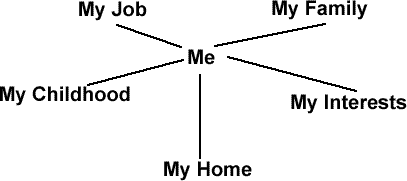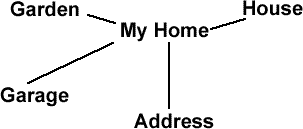Start by learning practical vocabulary. Learn words that are actually important to you at work, at home and out and about.
Use stick it notes and label things around your home.
Use self-study vocabulary books, these should include a good dictionary, and a thesaurus.
Expose yourself to as much English as possible by reading, watching the TV, films or the news and listening to the radio or music.
Read an English magazine. If you can afford it take out a subscription to a magazine or newspaper.
Do online exercises. Keep a note of how you did and go back in a few weeks / months to see how you have improved.
Try to memorize whole sentences, not just individual words. When you have learnt a word, write about it in context.
Create or play word games. Scrabble, Crossword Puzzles, Hangman, and Dingthings are all great ways to play with words.
When you know you need to learn a particular word list for a test, start using the words immediately, use them in context and frequently. See if anyone is talking about those words online and comment on people's blogs or pages in Facebook, or on Google Plus.
Review, revise, review. These are my 3 rs. Review your word lists. Revise the ones you keep getting stuck on. Review the list ... ad infinitum.
No one said it was going to be easy, but unless you are studying to become an Aerospace engineer, it's not rocket science.
Keep a notebook to help you remember what you've learnt.
Here's a guide to keeping an English notebook.
Build a vocabulary web to organise your vocabulary about certain subjects.
For example your personal life:-

and then extend it:-

and then extend it further...
Start a flash cards box.
Buy or cut out some cards all the same size.
Draw or cut out some pictures.
Paste the pictures onto one side of the card and write the correct word on the other side.
Put new words in the front of the box.
Test yourself using either the pictures, the words or both.
If you have forgotten a word bring it to the front of the box.
For more advanced vocabulary, write the word on one side and the dictionary definition on the other.
Words in English are not always spelled as they are pronounced. Spelling in English follows some basic rules and the majority of English words (around 75%) follow these rules. You can learn the rules but there are always exceptions to the rules that need to be learned too.
The main basic spelling rules of English relate to: prefixes and suffixes; spelling and plurals; doubling letters; dropping and adding letters; verb forms. This section focuses on British English but also covers some basic differences in spelling between British and American English.
When there is a prefix, we do not normally add or take away more letters:
dis + obey → disobey | mis + spell → misspell |
dis + satisfied → dissatisfied | over + hear → overhear |
in + humane → inhumane | super + human → superhuman |
in + sane → insane | un + natural → unnatural |
inter + national → international | un + sure → unsure |
mis + rule → misrule | under + pass → underpass |
We commonly change the prefix in- to il-, im- or ir- when the first letter of a word is l, m, p, or r.
in becomes il- before l | in becomes im- before m or p | in becomes ir- before r |
illegible illiterate illogical | immoral immature impossible | irrelevant irresponsible irreplaceable |
There are rules for the plurals of regular nouns and the -s forms of regular verbs.
The general rule is add -s:
bring → brings day → days ear → ears smile → smiles speak → speaks town → towns
If the ending is pronounced as ‘ch’ /tʃ/ or ‘s’ /s/, we add -es /ɪz/:
noun plurals | verb -s forms |
bus → buses | cross → crosses |
church → churches | fetch → fetches |
kiss → kisses | guess → guesses |
base → bases face → faces judge → judges lose → loses
If the word ends in a consonant plus -y, we change -y to i and add -es:
noun plurals | verb -s forms |
baby → babies | marry → marries |
opportunity → opportunities | reply → replies |
noun plurals | noun plurals/verb -s forms |
tomato → tomatoes | echo → echoes |
cargo → cargoes | embargo → embargoes |
hero → heroes | go → goes (go [n] = attempt) |
However, some words ending in -o only require -s: videos, discos, pianos, memos, photos.
For some nouns ending in -f or -fe, we form the plural by changing the -f or -fe to -ves:
loaf → loaves shelf → shelves thief → thieves wife → wives
We often double the final consonant of a word (b, d, g, l, m, n, p, r, t) when a suffix beginning with a vowel is added (-ed, -er, -est, -ing):
hop + -ed → hopped | slim + -ing → slimming |
red + -ish → reddish | thin + -er → thinner |
rub + -ed → rubbed | travel+ -er → traveller |
sit + -ing → sitting | wet + -er → wetter |
When we add a suffix to a word with more than one syllable, we double the consonant only when the word ends in a stressed syllable (the stressed syllable of the base form is in bold):
admit + -ing → admitting | prefer + -ed → preferred |
forget + -ing → forgetting | transmit + -ed → transmitted |
occur + -ence → occurrence | upset + -ing → upsetting |
Compare, however, visit or enter where the spoken stress is on the first syllable:
visit → visiting | enter → entered |
|
|